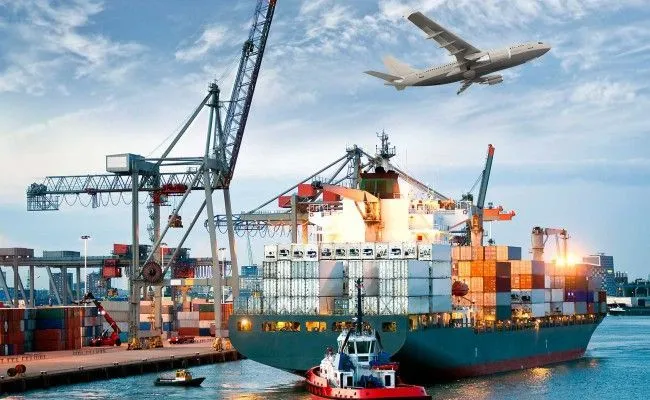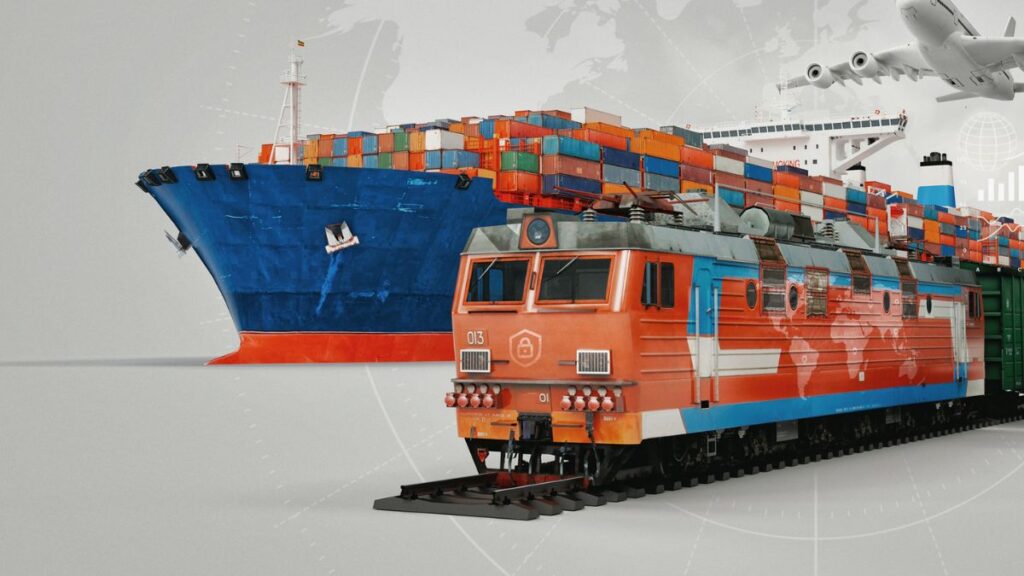- By TOP CHINA FREIGHT
- September 4, 2025
- Shipping
Table of Contents
Finding the right logistics partner can make or break your business. Many importers wonder how to get a forwarder in China that is reliable, affordable, and efficient. Because of complex shipping costs, customs processes, and transit time management, having a trusted freight forwarder is essential for smooth supply chain operations.

What does a forwarder in China actually do?
A freight forwarder in China manages the full logistics process between the factory and your destination. They handle everything from booking containers to customs clearance and inland trucking. Moreover, forwarders coordinate with carriers to secure competitive shipping costs while ensuring that your cargo arrives safely.
Their services often include:
- Cargo consolidation for LCL (Less than Container Load)
- FCL (Full Container Load) booking and management
- Air freight and express delivery scheduling
- Customs clearance support with required documentation
- Warehousing and last-mile delivery coordination
Therefore, when you choose a forwarder in China, you are not just buying transportation—you are outsourcing a critical piece of your supply chain.
Why is choosing the right forwarder important?
Selecting the wrong forwarder can lead to costly delays, hidden charges, or customs clearance problems. However, a reliable partner ensures that you stay competitive by reducing shipping costs and guaranteeing timely delivery.
Key benefits include:
- Lower freight rates through carrier relationships
- Faster transit time using optimized routes
- Smooth customs processes to avoid penalties
- Greater visibility with shipment tracking
- Improved supply chain resilience
Therefore, knowing how to get a forwarder in China means understanding your own priorities—whether they are cost, speed, or flexibility.
How to get a forwarder in China step by step
Identify reputable freight forwarders through trade networks, referrals, and industry listings
Check if they cover air freight, sea freight, warehousing, and multimodal transport
Compare freight rates, including customs charges and delivery schedules
Verify licenses, certifications, and experience with your product category
Before scaling up, trial shipments allow you to confirm reliability
What shipping methods do Chinese forwarders provide?

A forwarder in China typically offers multiple transport modes to suit different budgets and timelines.
| Shipping Method | Average Cost | Transit Time | Pros | Cons |
|---|---|---|---|---|
| Air Freight | $4–$8 per kg | 5–8 days | Fast, reliable, suitable for urgent cargo | Expensive for bulk goods |
| Sea Freight FCL | $1000–$1800 per 20ft container | 25–35 days | Best for large volumes, cost-efficient | Slow transit |
| Sea Freight LCL | $50–$80 per CBM | 28–40 days | Affordable for smaller loads | Longer consolidation times |
| Rail Freight | $2500–$3500 per container | 18–25 days | Faster than sea, cheaper than air | Limited routes |
| Express Courier | $6–$12 per kg | 3–7 days | Door-to-door, convenient | Costly for large cargo |
Therefore, choosing the right method depends on your cargo type, delivery deadline, and budget.
How much does it cost to hire a forwarder in China?

The cost varies based on the type of freight, destination, and services included. Additionally, freight forwarders charge service fees for documentation, customs clearance, and coordination.
Air freight:
Typically $4–$8 per kg
Sea freight (FCL):
Around $1000–$1800 for a 20ft container
LCL freight:
Priced per cubic meter, usually $50–$80 CBM
Customs clearance fees:
$50–$150 per shipment
However, hidden costs like port handling, trucking, or storage fees can quickly add up. Therefore, always ask for a detailed breakdown in your quotation.
What documents do you need for customs clearance?

Correct paperwork ensures smooth customs clearance and avoids penalties. Most forwarders in China provide guidance, but you should prepare:
| Document | Purpose |
|---|---|
| Commercial Invoice | Declares value of goods |
| Packing List | Details weight, dimensions, and contents |
| Bill of Lading (B/L) | Contract of carriage |
| Certificate of Origin | Confirms where goods were produced |
| Import License | Required for restricted items |
| Customs Declaration | For taxes and duties |
Moreover, failing to submit accurate documents can delay shipments significantly. A skilled forwarder reduces these risks by managing the process for you.
Should you choose a local or global forwarder in China?
You can either hire a local Chinese forwarder or work with a global logistics company. Each option has advantages.
- Local forwarders often provide lower costs and better relationships with Chinese suppliers.
- Global forwarders offer strong networks, advanced tracking, and more extensive insurance options.
However, small businesses often benefit from local agents because they are more flexible and cost-conscious. Meanwhile, larger importers may prefer global companies for supply chain integration.
What factors influence transit time from China to your country?
Transit times depend on distance, shipping method, and customs clearance efficiency. For example, shipping from China to Europe by sea may take 30–40 days, whereas air freight to the U.S. may take under a week.
Additional delays may occur due to:
- Port congestion
- Holiday season surcharges
- Customs inspections
- Incomplete documentation
Therefore, when learning how to get a forwarder in China, always ask for both estimated and realistic transit times.
Case study: Small business importing electronics
A small retailer in Italy needed to import 200 laptops from Shenzhen. At first, they struggled with unreliable couriers and high costs. After researching how to get a forwarder in China, they partnered with a Shenzhen-based freight forwarder.
The forwarder consolidated shipments, booked air freight for urgent deliveries, and arranged LCL shipping for bulk orders. Moreover, they handled customs clearance and insurance. As a result, the retailer reduced shipping costs by 20% and improved delivery times by two weeks.
This example shows how choosing the right forwarder can transform your logistics strategy.
Pros and cons of working with Chinese forwarders
| Pros | Cons |
|---|---|
| Lower costs due to strong local networks | Language barriers may arise |
| Expertise in customs and regulations | Service quality varies |
| Flexible solutions for LCL and FCL | Payment security risks |
| Faster coordination with Chinese factories | Time zone differences |
Therefore, importers should weigh these pros and cons carefully before making a final decision.
Conclusion
Learning how to get a forwarder in China is a crucial step for any importer. A good forwarder reduces shipping costs, ensures smooth customs clearance, and manages delivery schedules effectively. Moreover, they provide flexibility through different freight methods, including air, sea, rail, and express. Therefore, importers should evaluate services, compare costs, and test reliability before committing to long-term contracts. With the right forwarder, your supply chain becomes more efficient and competitive.
Need a Shipping Quote?
If you want expert guidance and peace of mind, our team is ready to assist.
TJ China Freight offers tailored solutions to help businesses of all sizes ship more reliably from China.

FAQs
Q1:What is the cheapest way to ship goods from China?
The cheapest option is sea freight. LCL shipping allows smaller businesses to share containers, lowering shipping costs from China while maintaining reliable delivery schedules.
Q2:How do I find a reliable freight forwarder in China?
Check licenses, service coverage, and customer reviews. A reliable freight forwarder in China should offer customs clearance, multimodal shipping, and transparent pricing for all logistics services.
Q3:Do Chinese forwarders help with customs clearance?
Yes, freight forwarders in China handle customs clearance, HS codes, and import duties, ensuring smooth cross-border delivery and avoiding unnecessary delays at ports or airports.
Q4:Can I use air freight for small shipments from China?
Yes, air freight is ideal for urgent, lightweight cargo. Forwarders in China arrange express or standard air services depending on budget and delivery deadlines.
Q5:Do freight forwarders provide insurance for cargo?
Yes, most forwarders in China offer cargo insurance to protect against damage, theft, or loss during transit. This service is essential for high-value shipments.
